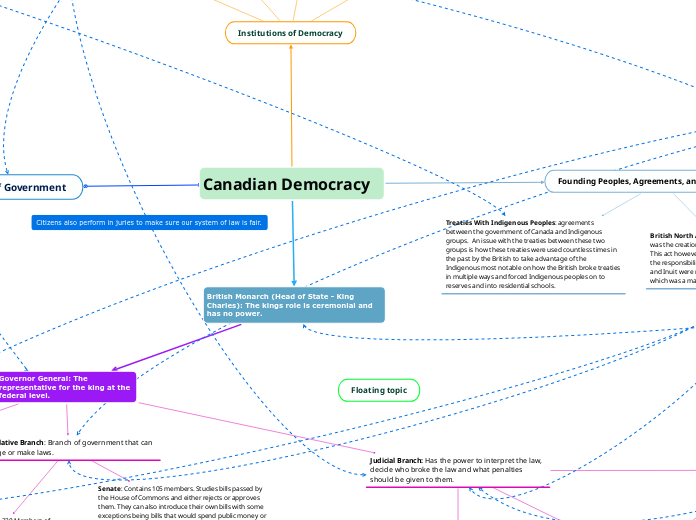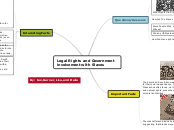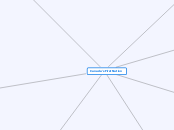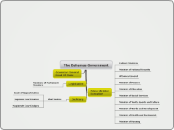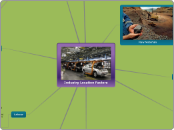Floating topic
Lieutenant Governor General : Appointed by the governor general on the recommendation of the Prime Minister. Represents the King at the provincial level. There are ten of them, one for each province.
Canadian Democracy
Institutions of Democracy
Citizen Groups: Citizen Groups are important to democracy as they help speak out for the views of a wide array of citizens and help advocate for specific things and try to convince politicians. Of course not all advocacy groups would be speaking for something a large population of citizens believe in and what they might be advocating for may not be good. Nevertheless, citizen groups are essential in a democracy as it allows politicians to see the views of various citizens who may have not been seen before.
Citizens: Citizens make up our society, without citizens there is no government to vote for. Citizens vote for leaders but if the citizens don't vote then there is no leader so citizens are one of the most important thing in a government.
Free and fair elections: Elections are held at all
three levels of government: Federal, Provincial, and Municipal and are used to decided the leader of that level of government. A free and fair election is an election where there is no foul play happening and where all the citizens have the right to vote for anyone they wish in the election.
Free and independent press: freedom to seek, receive and give information of all forms to someone through any medium. A stressor free and independent press is misinformation, which can also be revealed to the public that could even cause public panic but as long as the truth is revealed and the panic of the people relinquished our free and independent press is still a great institution of democracy.
Founding Peoples, Agreements, and Documents
The Constitution: Sets out the basic principles of the democratic government in Canada.
Charter of Rights and Freedom: Protects Canadian citizens from the breach of their rights and laws by the government. If the government were to break any part of the charter then the courts will give the government a consequence.
Constitutional Monarchy: The government acts in the name of the crown but is authorized by the Canadian citizens. The monarchy plays no role politically in Canada and is purely ceremonial. A stressor for some Canadian citizens with the constitutional monarchy is that the British are too correlated with the past of colonialism of Canada. Due to this many may think that Canada should be an independent country and have no correlation with the British Monarchy.
British North American Act: Active from 1867-1975. It was the creation of Canada and it's basic constitutions. This act however, also caused the First Nations to be under the responsibility of the federal government but the Metis and Inuit were not considered to be of Indigenous status which was a major issue for them.
Treaties With Indigenous Peoples: agreements between the government of Canada and Indigenous groups. An issue with the treaties between these two groups is how these treaties were used countless times in the past by the British to take advantage of the Indigenous most notable on how the British broke treaties in multiple ways and forced Indigenous peoples on to reserves and into residential schools.
Levels Of Government
First Nations, Metis, and Inuit: Some indigenous communities have their own governments which share some responsibilities with the provincial/territorial or federal governments.
Municipal: Responsible for local facilities such as, public transit, snow removal, water and sewage, building permits, zoning laws, and etc.
Provincial: Responsible for the provinces education, health care delivery, licenses, highways and etc.
Federal: Responsible for the countries national defense, foreign affairs, baking system, immigration and citizenship, and etc. Led by the Prime Minister
British Monarch (Head of State - King Charles): The kings role is ceremonial and has no power.
Governor General: The
representative for the king at the
federal level.
Judicial Branch: Has the power to interpret the law, decide who broke the law and what penalties should be given to them.
Civil Division
Family Custody Court: where custody and divorce and other things related to custody are settled.
Small Claims Court: Where private disputes worth less then 3,000 dollars are settled.
Civil Court: Where private disputes are settled.
Criminal Division
Criminal Court: Where ordinary criminal cases will go.
Superior Court: Where major criminal cases go.
Supreme Court: The court of final appeal, decisions in this court are final. It handles disputes in all areas.
Provincial Supreme Court: Handles some appeals from lower courts. It handles criminal prosecutions, civil lawsuits and family law disputes.
Court of Appeal: Hears both civil and criminal appeals. It is the general appeal court.
Executive Branch: Branch of government that carries out the laws and policies of the government
Cabinet: Group of Ministers. Appointed to by the
Prime Minister, formally appointed by the governor general. Kind of like critics for their government department and report on the progress of that department.
Prime Minister: Leads the political
party in power (Head of the Government). Has
many duties some of which are, hiring other
government officials, giving specific projects to
different departments and etc.
Legislative Branch: Branch of government that can change or make laws.
Senate: Contains 105 members. Studies bills passed by the House of Commons and either rejects or approves them. They can also introduce their own bills with some exceptions being bills that would spend public money or impose taxes which can only be introduced by the House of Commons.
House Of Commons: Contains 338 Members of Parliament. It is the major law making party in Parliament. It is where most of the debates are held, and where Members of Parliament talk about national issues.
